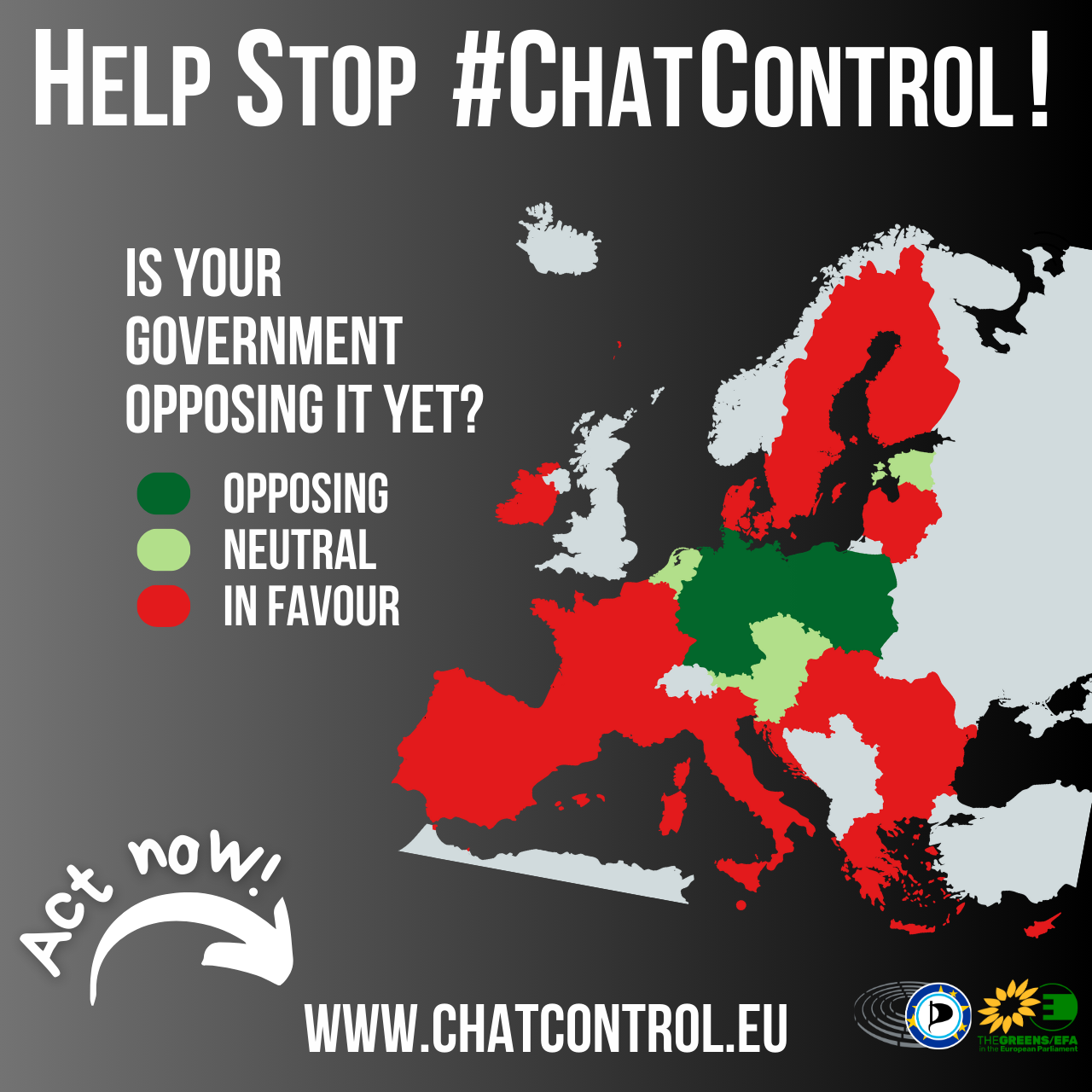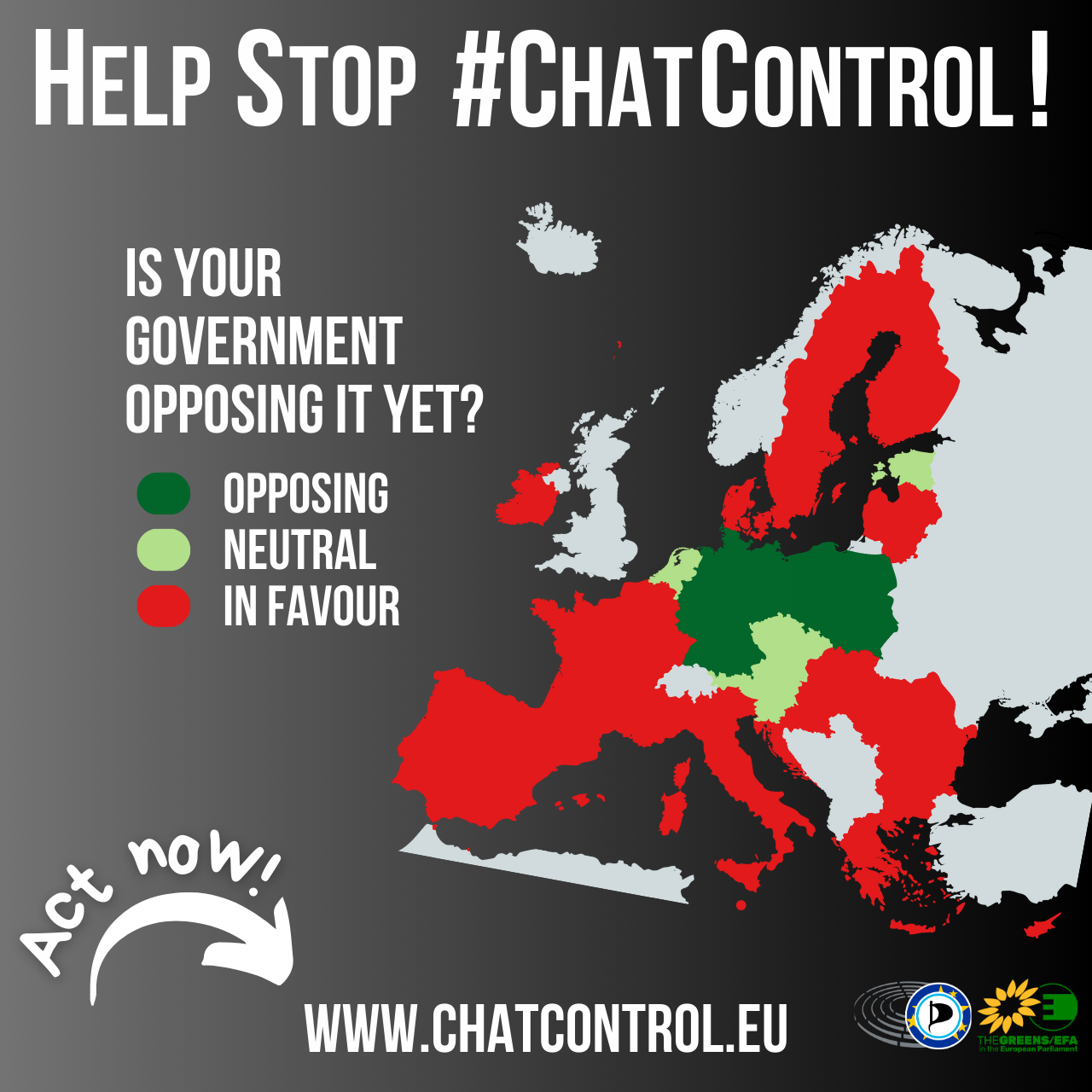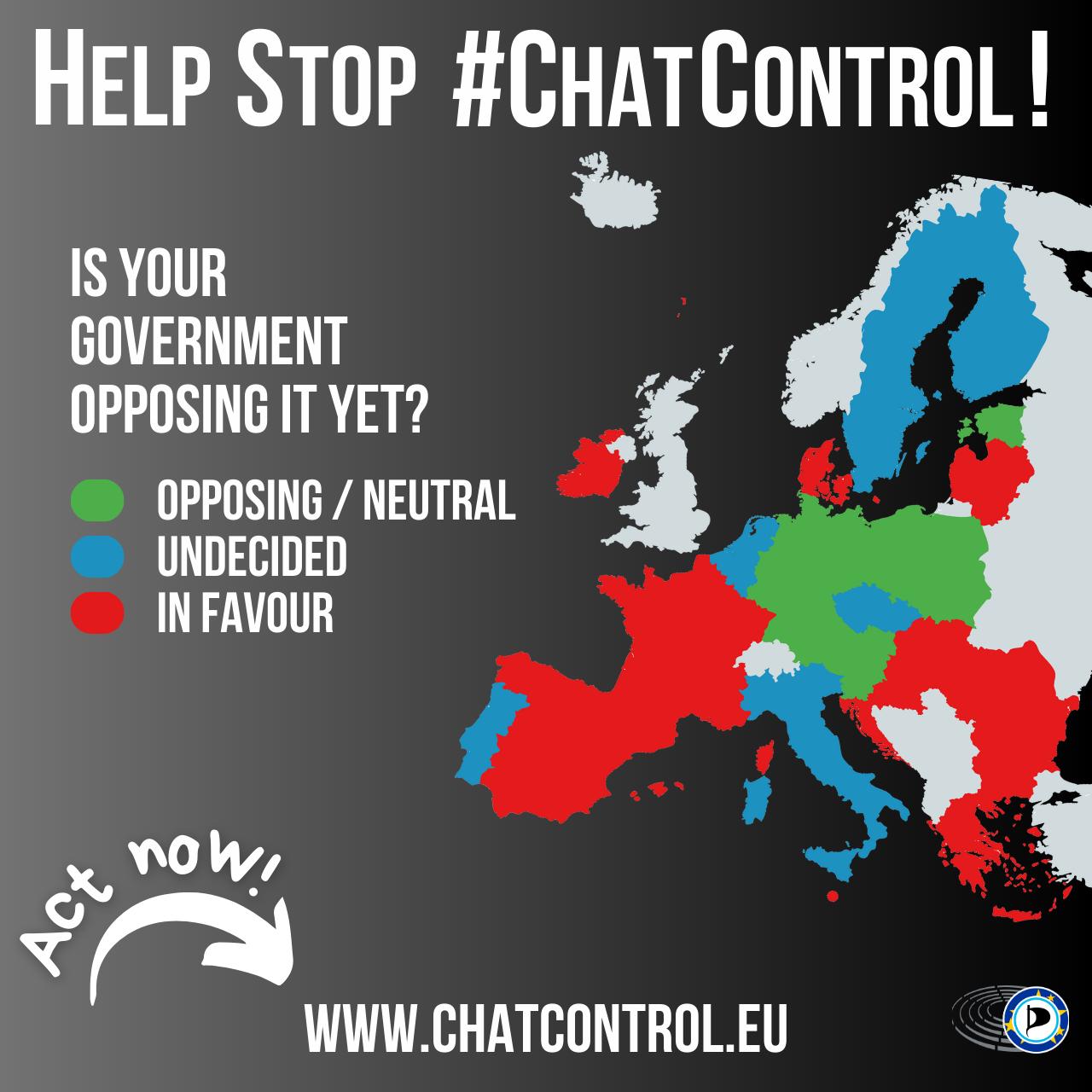Real child protection instead of Big Brother scanning: 5-point plan for the deadlocked EU Council negotiations on child sexual abuse bill (chat control)
Due to the massive protests against the EU plans for the indiscriminate searching of all private messages using error-prone algorithms (CSAR), there is currently no qualified majority for the Spanish Council Presidency’s plan to have an even more extreme form of the proposal adopted by EU governments on 28 September. Germany now proposes to first adopt the draft regulation without the provisions on „detection orders“ (dubbed „chat control“). Pirate Party Member of the European Parliament and negotiator for the Greens/European Free Alliance group, Patrick Breyer, has a different proposal:
“Neither the extreme proposal of EU Commission and Council Presidency nor blocking the entire regulation have majority support. The proposed scanning of private messages is the most toxic part of the plans, but the problems go far beyond that. We therefore need a new approach that focuses on preventive child protection instead of mass surveillance and paternalism. The latest text proposal by the Council Presidency needs to be fundamentally revised in at least 5 points to achieve a consensus:
- No indiscriminate chat control: Instead of blanket scanning of private messages, the judiciary should only be able to order searches of the messages and uploads of suspects. This is the only way to avoid a disproportionate mass surveillance regime inevitably failing in court and achieving nothing at all for children. There must also be no untargeted ‘voluntary chat control’ by internet corporations.
- Protect secure encryption: So-called client-side scanning to subvert secure encryption must be explicitly ruled out in the text. The proposed general committments to encryption in the text are worthless if scanning and diverting of messages take place even before the process of encryption has taken place. Our personal devices must not be perverted into scanners and bugs in our pockets.
- Protect the right to anonymity: Remove the proposed mandatory age checks by all communication services to safeguard the right to communicate anonymously. Whistleblowers risk falling silent if they would have to show ID or their face before being able to leak violations of the law.
- Content removal instead of mere blocking: Instead of trying and failing to block illegal content via access providers or search engines, it should become mandatory for hosters and law enforcement agencies to remove or have removed reported illegal material at the source.
- No app censorship for young people: Excluding young people from commonplace apps like Whatsapp, Instagram or games as proposed is an entirely unacceptable means of protecting them from grooming risks. Instead, the default settings of the services must become more privacy-friendly and secure by design.
The EU’s push for introducing blanket chat control scanning of private correspondence is unprecedented in the free world. It divides child protection organisations, victims of abuse, other stakeholders, the Parliament and the Council. It is time for a fresh start that is based on consensus. I am convinced that we can protect children much better by adopting a new, consensual approach now, and I call on governments to open up for a fresh start.”



